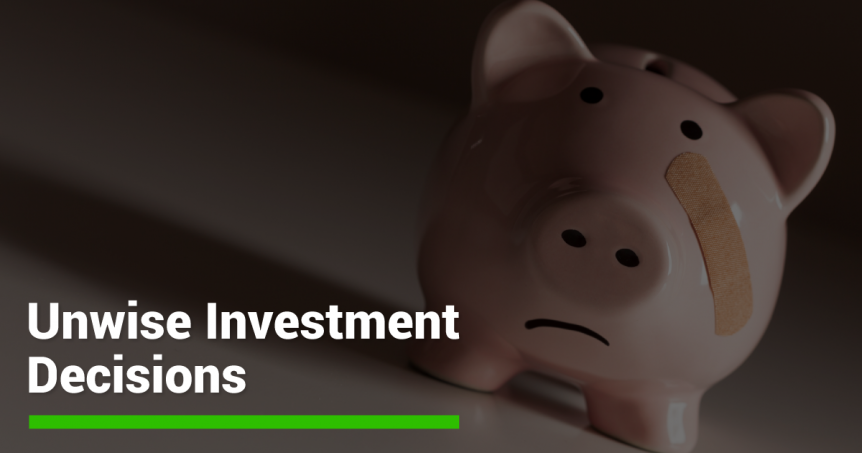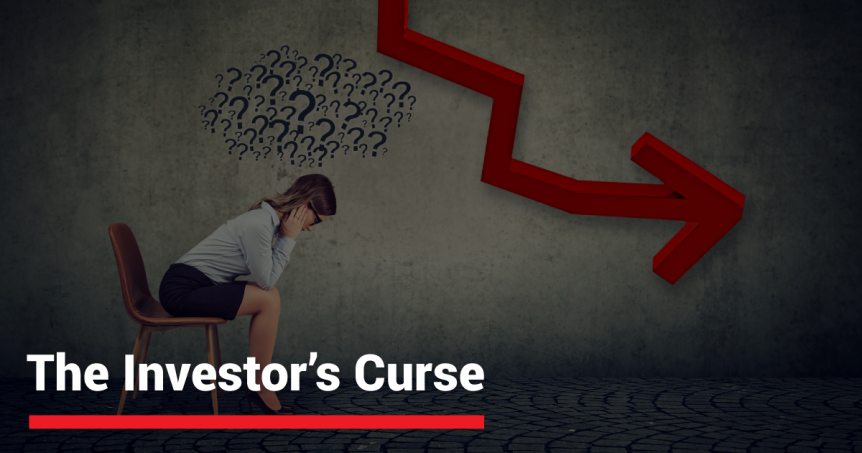In the Snider Investment Method, we sell options for a premium, which is the amount we receive for selling someone the right to purchase our shares at a particular price over a given period of time. This will be the first of a series, with each article explaining a different component that helps determine the premium of a stock option. Today I will focus on one of the most important factors: time value.
3 Ways to Maximize Social Security Benefits
With 10,000 baby boomers retiring every day, having a plan to maximize your social security benefits is an essential piece of your retirement plan. Most Americans believe that their options are limited in this area of financial planning, and I’m here to tell you that it’s quite the opposite.
Unwise Investment Decisions
By Jesse Anderson, CFA
Last weekend a friend said to me:
“I cashed out my entire 401(k) before the tech bubble, and Thank God!, because I would have lost everything.”
The Sandwich Generation
Are you one of the struggling members of the Sandwich Generation? There have been a growing number of people who have taken on the responsibility of caring for their aging parents while simultaneously caring for their own children, known as the “Sandwich Generation.”
The Fastest Way to Sabotage Your Retirement
We’ve talked about this before – on a few occasions – but it never hurts to revisit timeless truths that help keep things in perspective. Last year, a survey by Allianz Life Insurance Company of North America reported that more Americans would rather die than run out of money in retirement. While neither is a pleasant thought, at least the latter can be avoided.
Deficit, Debt Ceiling, and Downgrade
by Jesse Anderson, CFA Recent market volatility and declines have left many investors feeling anxious. Hopefully, after weeks of debate, Congress has set us on a path toward improved fiscal discipline. That action will not erase many years of irresponsible spending, and as a result, Standard & Poors lowered our country’s credit rating over the weekend. Many of you may …
Raise the Debt Ceiling or Default?
President Ronald Reagan stated in 1983, “The full consequences of a default — or even the serious prospect of default — by the United States are impossible to predict and awesome to contemplate.” On Aug. 2, the U.S. Treasury will no longer be able to pay our nation’s obligations. Congress is at an impasse, essentially faced with two immediate choices: …
Retirement Regrets
I was reading an article on Yahoo! a few weeks ago and author Mark Patterson closed his piece by saying, “The pain of financial discipline will be far less than the pain of retirement regrets.” The statement really struck me, and I started thinking about how many retirees look back on what they could have – or should have – …
The Investor’s Curse Part II
As an investor, you need to be aware of the underlying biases and human tendencies that can influence your behavior and cause you to act irrationally. In the most recent blog post, we discussed how emotions and psychology often have a negative impact on our investment decisions. We took a closer look at recency bias and herd mentality, two common …
The Investor’s Curse
When it comes to investing, emotions and human nature often influence our decisions, causing us to behave imprudently or illogically. Why does this happen? Behavioral finance is the study of psychology as it relates to the fields of economics and finance to explain why and how people make irrational financial decisions. For years, it was assumed that “conventional” economic theories …







